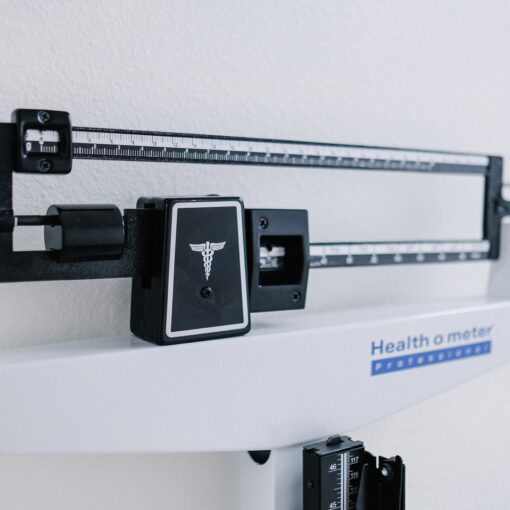Page Menu
There are many various types of “diet problems.” Which type do you have? What do you “mean” when you say you have a “diet problem?”
Are you simply disappointed in the results of your diet? Is your diet causing other problems with your digestive system, or something else?
Diets often fail because the dieters perceive that they are having some kind of “problem” with their diet.
Please Note: This post may contain affiliate links. If you click one of them, we may receive a commission at no extra cost to you. As an Amazon Associate, I earn from qualifying purchases.
Key Concepts and Top Takeaways
– Set realistic goals: Aim for gradual weight loss, about 1-2 pounds per week.
– Track your food intake: Use a journal or app to monitor what you eat daily.
– Focus on whole foods: Prioritize fruits, vegetables, lean proteins, and whole grains.
– Avoid fad diets: Steer clear of extreme diets that promise quick results.
– Stay hydrated: Drink plenty of water throughout the day to support metabolism.
– Plan meals ahead: Prepare healthy meals in advance to avoid unhealthy choices.
– Manage portion sizes: Use smaller plates to control serving sizes effectively.
– Incorporate physical activity: Aim for at least 150 minutes of moderate exercise weekly.
– Seek support: Join a weight loss group or find a buddy for accountability.
– Be patient and persistent: Understand that setbacks are normal; stay committed to your journey.

Not All Diets Are Right for All People
It can be difficult to know which is the best diet for you. There are so many types of diets that people have come up with, but they are not always right for everyone.
If you are trying to lose weight, look for a diet plan that will help you meet your goals. If you are trying to gain weight, then try a calorie-dense diet plan with more carbs and fats.
While there are many diets that can help you lose weight, not all of them are right for everyone. Counting calories or limiting food groups is not right for people who want to maintain a healthy, balanced lifestyle. Cutting too many calories will leave you feeling hungry and weak, which can lead to overeating later on. Some people need diet plans that allow them to eat foods they enjoy without guilt.
Health is a delicate balance of many things in life, including diet. There are many diets out there by different nutritionists and doctors. The right diet for one person might not be the right diet for another. For example, people with optimal health who need to lose weight might benefit from trying the ketogenic diet, but someone who has diabetes should not try this particular diet because it could be dangerous.
If you’re looking for a quick answer to your diet problems, you’re going to be disappointed because, just like appropriate weight loss, the answers to your weight loss problems are going to take time. Why? Because there could be many reasons for your problems and no one, quick answer is going to cover them all.
 Even the best, most efficient and most popular diets wind up giving some type of diet problem to someone somewhere. You’re not the only person who has had a problem with a particular diet or diet plan.
Even the best, most efficient and most popular diets wind up giving some type of diet problem to someone somewhere. You’re not the only person who has had a problem with a particular diet or diet plan.
What is your weight condition? Are you just trying to lose a few pounds, or are you obese and need to lose a LOT of weight?
What kinds of eating habits were you used to prior to your diet? What kinds of foods did you consume on a regular basis? Are you still eating those kinds of foods?
What kind of diet are you on now? Is it some type of deprivation diet on which you are suddenly cutting back on certain kinds of foods, or are you reducing all food intake?
If you’re on some type of deprivation diet, remember that your body has been accustomed to receiving a specific type of nutritional intake, probably for a very long time. Now, suddenly you’re depriving your body of certain substances or chemicals that it was very used to getting regularly. That alone could cause problems, just like any addiction.
Give Your Body Time to Adapt to Changes from Your Diet
 The first thing to do when making a change to your diet is giving your body time to adapt to it. Not only will this help you make the necessary changes more gradually, but it will also minimize withdrawal symptoms that may include headaches, stomach pains, and cravings. In order for your body to fully adjust to the new foods you are putting into it, try not to make any drastic changes from one day to the next.
The first thing to do when making a change to your diet is giving your body time to adapt to it. Not only will this help you make the necessary changes more gradually, but it will also minimize withdrawal symptoms that may include headaches, stomach pains, and cravings. In order for your body to fully adjust to the new foods you are putting into it, try not to make any drastic changes from one day to the next.
It's common for people to make sweeping changes to their diets, but it takes time for your body to adapt to such changes. Common reactions include headaches and stomach aches. When you switch from a primarily plant-based diet, it takes time for your digestive system to adjust because there is less fiber and plant matter to move things along. Your body also needs time to adjust to the sudden increase in sugar intake and high levels of fat.
Give your body some time to adapt to these sudden, significant changes. What you may be going through may simply be a withdrawal process in which your body needs to adjust and reorient itself to the new kinds of foods it’s receiving. If you’re also starting new exercise routines to enhance your diet, your body may be trying to adapt to the new physical stress.
If you give yourself adequate time, and you’re still having diet problems, your diet may not be the problem at all. It may be that the diet simply is pointing out other bodily problems that need to be addressed. THIS is the time to visit your medical practitioner and have them run some tests.
Different body organs can be affected by certain types of diets. You may be getting too much of one thing and not enough of another, depending on the type of diet you’re on. For instance, if you’re accustomed to eating a low or moderately low-fat diet, and suddenly you start a low carbohydrate, high protein diet, your gallbladder may react painfully to the added amount of fat in the diet.
Remember that medical diets are such that they either deprive you of something or embellish you with something. For instance, a low sodium diet deprives you of significant amounts of salt whereas a high potassium diet, for a person whose body does not produce enough potassium, enhances the amount of potassium consumed. Obviously, each diet has different goals.
It’s the same with your weight loss diets. Some are good, healthy diets with few problems and a moderate fat loss schedule. Then there are the fast weight loss diets that are usually some type of deprivation routine and may lead to problems caused by the sudden loss of intake of a specific substance or chemical. This is why it is imperative that you use caution with any type of fad diet or fast weight loss diet.
Reasons That Your Diet Might Not Be Working
The years of information and research that have been done on the subject of dieting has led to a few conclusions that may help people understand why the diets they are following might not be working. First, there is a higher chance that you are not eating enough calories when you go on a diet, and this can lead to extreme hunger and difficulty with mental function.
Many people go on a diet, and they never end up losing the weight that they want to. The reason that this happens is that just going on a diet doesn’t help you make the big lifestyle changes that you really need to make for losing weight and living a healthy life. Diets don’t work for many people for a variety of reasons. Here is a good look at why that diet may not be working for you.
It Takes Too Much Time
One of the main reasons that a diet may not be working for you is because it is taking up too much of your time. Some diets require that you have specific foods that you may not have time to prepare all the time. While preparation and planning are definitely important to any weight loss plan, something that takes up too much time won’t fit into your lifestyle, which means you’ll eventually abandon it. You’re better off to choose healthy diet changes that you can use for life.
You Get Bored with the Diet
Another of the reasons that a diet may not work out for you is because it’s easy to get bored with a diet. Some diets only allow certain types of foods, which means you get tired of the foods that you are supposed to eat all the time. The great thing is that there really are so many healthy foods out there to choose from. You don’t have to get bored on a diet that limits what you can eat so drastically. Learn more about healthy foods and healthy cooking for better results.
Pleasure with Eating is Gone
Sometimes you can lose the pleasure of eating with some of the diets that are out there. When you’re never allowed to enjoy something you like, it becomes very difficult to stick with that diet. You should enjoy eating, and you should get pleasure out of it. You want something that allows you to really enjoy eating while still making sure that you are making healthy food choices.
Too Many Restrictions
If you are on a diet that has too many restrictions, this may be why the diet really isn’t working out for you. It’s tough to end up dealing with many restrictions, and these types of diets probably don’t realistically fit into your life. Some diets actually restrict calories too much as well, which means your metabolism stalls, and you don’t lose weight. Dieting shouldn’t be all about restrictions. It should be about the wonderful foods that you can enjoy and learning how to do so in moderation.
These are just a few of the reasons that your diet may not be working out for you. This is the reason that it’s better to simply learn more about healthy eating instead of actually going on a diet. Eating a healthy diet is important, and you do need to be careful about what you eat. However, a diet is doomed to fail if it removes the pleasure of eating, has too many restrictions, you get bored, or it ends up taking too much of your precious time. Avoid these types of diets and learn ways to eat healthily, so you have changes that you can enjoy for the rest of your life.

Kevin Collier is a seasoned health writer at Otchut.com, specializing in over-the-counter medicines, common medical ailments, and general health topics. With a background in healthcare and a passion for making medical information accessible, Kevin aims to empower readers with knowledge to make informed health decisions. When he's not writing, he enjoys researching the latest in health trends and advocating for wellness in his community.







